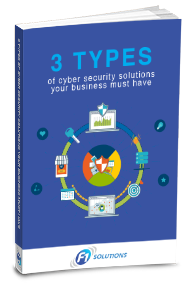There aren’t many business leaders who would say they like regulatory compliance and all the high expenses and reams of red tape that come with it. But there’s also no denying that it’s the glue that holds business operations together in an age when they’ve become so reliant on digital data and, therefore, potential targets of the next big cyberattack.
Regulatory compliance can itself become an important part of your overall value proposition by boosting trust and helping you innovate ahead of the competition. Here are five things you can do to make it happen:
#1. Build the right team
Leaders of small businesses often groan when faced with the high costs of hiring compliance experts. For example, a compliance officer costs almost $80,000 plus per year in the United States. Smaller organizations rarely have a need for a full-time compliance officer or dedicated department, but that doesn’t mean they don’t need the same skills at their disposal. A more affordable and scalable option is to hire an agency or consultancy firm on demand, which costs far less than building an in-house compliance team.
#2. Document every process
Most regulations, such as the Health Insurance Portability and Accountability Act (HIPAA) and the Payment Card Industry Data Security Standard (PCI DSS), require you to document every system and process that handles regulated information. This means starting with a complete and up-to-date inventory of all information-bearing assets, including paper documentation and digital assets. Creating a full set of data protection policies that are known to staff and followed are also a must with all regulations. By documenting every process and the security controls governing them, it will be easier to maintain visibility into your operational environment and identify any potential breaches of compliance.
#3. Conduct regular assessments
Every organization should carry out assessments for keeping track of the threats and the impacts certain incidents could have. There are physical, administrative and technical controls that should be measured in your environment against the appropriate standard. Make sure you have a trained and certified auditor to perform this assessment for you. This assessment must be conducted annually or after any “Major network change” to ensure it’s relevant and up to date.
#4. Implement multi layered security
Information security used to be a lot simpler when the only digital assets you needed to protect were desktop computers and servers. Today, employees are working remotely using their mobile devices to access cloud-hosted apps and data.
This means there are even more devices and entry points cybercriminals can exploit, hence the need for a multilayered approach to security. Antivirus software alone isn’t enough; you also need external management and monitoring to guard against insider threats in an age when social engineering scams are more prominent than ever. Antivirus, firewalls, Advanced threat protection, two factor authentication, mobile device management tools, drive encryption, permission segregation and application management are all key layers in this security environment. A robust Backup plan can also further protect the data in case of a breach.
#5. Train your employees
Hackers aren’t the biggest threat to your business — it’s your employees. Almost every data breach begins with a phishing email designed to trick victims into giving away login credentials or payment information. Employees may also be reckless with how they access and share company data, which makes it difficult to comply with regulations.
When a single mistake can leave your organization open to litigation, it’s never been more important to educate your employees on the risks and good practices pertaining to information security. Many regulations explicitly require businesses to maintain a formalized and documented training program. Phishing your own staff and providing remedial training for those that fall for the exercise is a great way to increase your organization's security maturity.
F1 Solutions provides tailor-made managed security programs to businesses subject to legal regulations like PCI DSS, HIPAA, ITAR, and DFARS. Contact us today to end your compliance and security worries.
Download our free eBook!
Learn about affordable cyber security solutions that keep your business safe from malware and data breaches by reading our free ebook: 3 Types of Cyber Security Solutions Your Business Must Have



